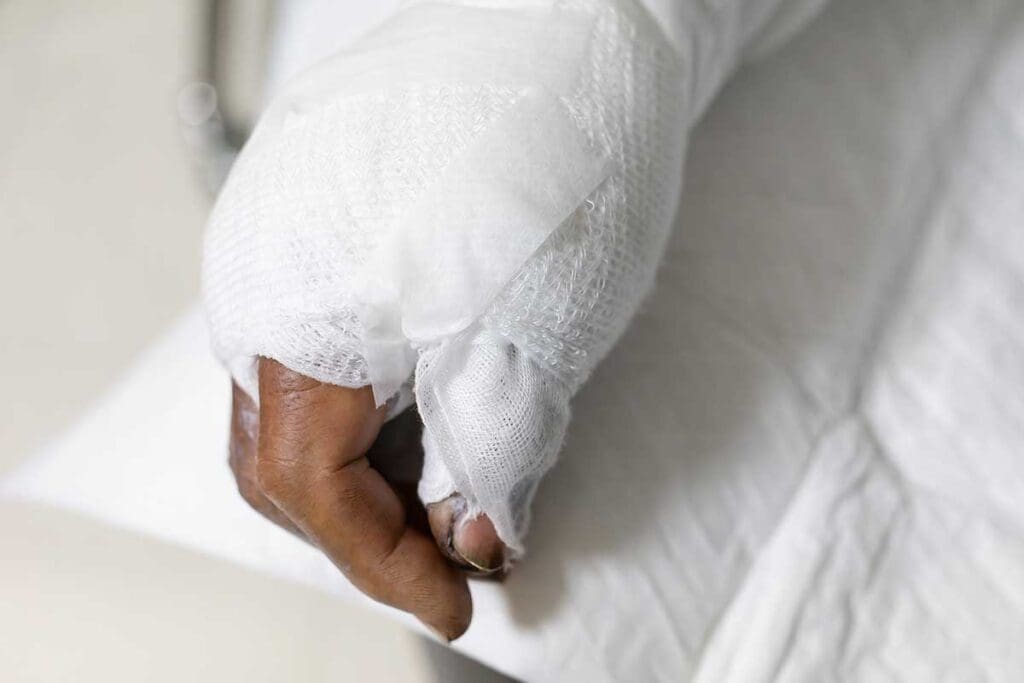Key Takeaways
Severe injuries can impact every aspect of life, including physical health, financial stability, and emotional well-being.
Many victims assume their injury was just an accident, but third-party negligence is often to blame.
Medical treatment, rehabilitation, and long-term care are critical to recovery but come with high costs.
Seeking compensation can help cover medical expenses, lost wages, and pain and suffering.
A personal injury attorney can investigate your case, determine liability, and fight for full compensation.
Introduction: The Harsh Reality of Severe Injuries
Suffering a severe injury can be a life-altering event. Whether you are dealing with a spinal cord injury, traumatic brain injury (TBI), multiple broken bones, severe burns, or even an amputation, the road to recovery is often long, painful, and uncertain. The immediate focus is, of course, on physical healing, but the consequences of such injuries extend far beyond the body. Emotional trauma, financial instability, and major life adjustments often accompany serious injuries.
Many injury victims assume their accident was just bad luck—but that is not always the case. Negligence by a third party may have contributed to or even caused the injury. Identifying who is responsible is key to securing the financial support needed for medical care and long-term recovery. If you were injured due to someone else’s recklessness, such as a careless driver, a negligent property owner, an unsafe workplace, or a defective product, you should not have to bear the burden of recovery alone.
Step 1: Seeking Immediate & Long-Term Medical Care
The most important thing after sustaining a severe injury is seeking medical attention immediately. Even if you do not experience immediate symptoms, certain injuries can worsen over time if left untreated. Proper medical treatment is essential, not only for your physical recovery but also for building a strong legal claim if you decide to seek compensation later.
Emergency Medical Care
- If you have suffered a spinal injury, head trauma, multiple fractures, or severe burns, seek emergency care immediately.
- Delaying medical treatment can lead to worsening symptoms and complications, making recovery even more difficult.
- A comprehensive medical evaluation (X-rays, MRIs, CT scans) can help diagnose hidden injuries.
- Follow all doctor recommendations, including medications, surgeries, and rehabilitation programs.
Understanding Your Injury & Treatment Plan
Severe injuries often require a combination of treatments over months or years. You may need:
- Surgeries & Medical Procedures – Spinal injuries may require stabilization surgery, fractures may require metal plates and screws, and burn injuries may need skin grafts.
- Physical Therapy & Rehabilitation – Helps restore mobility, muscle strength, and independence after an injury.
- Pain Management & Medication – Chronic pain is common after severe injuries; treatment may include nerve blocks, medication, or alternative therapies.
- Psychological Support & Therapy – Depression, PTSD, and anxiety are common among severe injury survivors; counseling and mental health support are crucial.
The Hidden Costs of Medical Care
- Many injury victims underestimate the financial burden of long-term medical care.
- Health insurance does not always cover specialized treatments or physical therapy.
- Home modifications, assistive devices, and mobility aids can add thousands of dollars to your expenses.
- A legal claim may be necessary to recover these costs if your injury was caused by someone else’s negligence.
Step 2: Understanding Third-Party Liability – Was Someone Else at Fault?
If your injury was due to someone else’s reckless or negligent behavior, they should be held responsible. Many people fail to realize they may have a legal claim, which could help them recover compensation for their medical bills, lost wages, and more.
Common Liable Parties
- Negligent Drivers – If your injury was caused by a car, truck, motorcycle, or rideshare accident, the at-fault driver may be responsible.
- Property Owners – If a dangerous condition (wet floors, broken stairs, faulty wiring) caused your injury, the owner may be liable.
- Employers & Workplaces – If an injury happened due to unsafe working conditions or lack of safety training, the employer may be at fault.
- Product Manufacturers – If a defective product, machine, or medical device led to the injury, the manufacturer may be responsible.
- Government Agencies – If poor road conditions, lack of traffic signs, or improper maintenance contributed to your injury, the city or state could be held accountable.
How to Determine Liability
- Collect evidence such as accident reports, witness statements, and photos of the scene.
- Review medical records to document the extent of your injuries.
- Consult a personal injury attorney to investigate negligence and determine fault.
If someone else is liable, you have the right to seek financial compensation.
Step 3: Documenting Your Injury & Financial Losses
To receive full compensation, you must document every aspect of your injury and its financial impact.
Keeping Track of Medical Records & Expenses
- Save all medical bills, test results, prescriptions, and therapy records.
- Document all out-of-pocket expenses related to your recovery.
Calculating Lost Wages & Future Earnings
- Keep track of missed workdays and reduced earning capacity.
- If you can no longer perform your job, you may qualify for additional compensation.
Measuring Pain and Suffering
- Chronic pain, depression, and loss of enjoyment in life can be legally compensated.
- Maintain a journal of your struggles and progress to strengthen your case.
Step 4: Why You Shouldn’t Accept an Insurance Settlement Too Soon
Insurance companies try to settle claims quickly and for as little as possible.
- The first offer rarely covers future medical needs or lost income.
- Signing a settlement waives your right to additional compensation later.
- Consulting an attorney before accepting an offer can ensure you get what you deserve.
Conclusion: Take Control of Your Recovery
A severe injury can feel physically, emotionally, and financially overwhelming—but you don’t have to go through it alone. If someone else’s negligence contributed to your injury, you deserve financial compensation for your medical care, lost wages, and pain and suffering.







